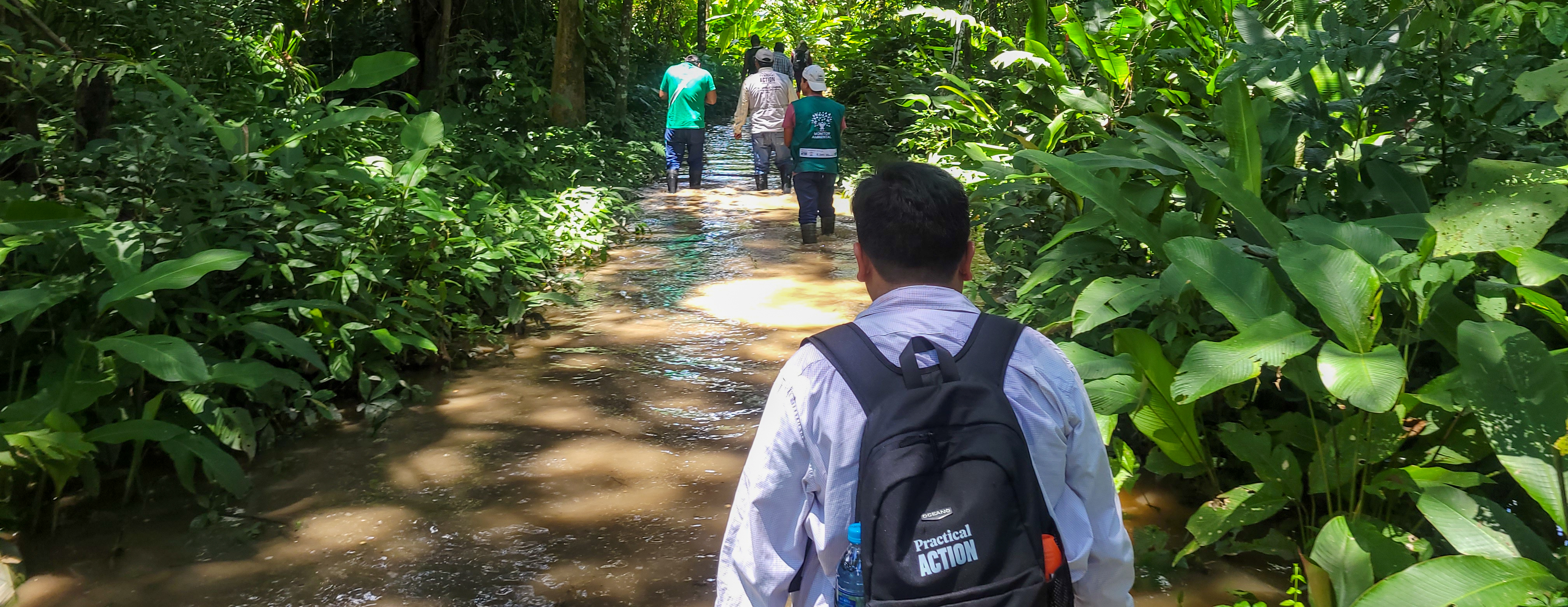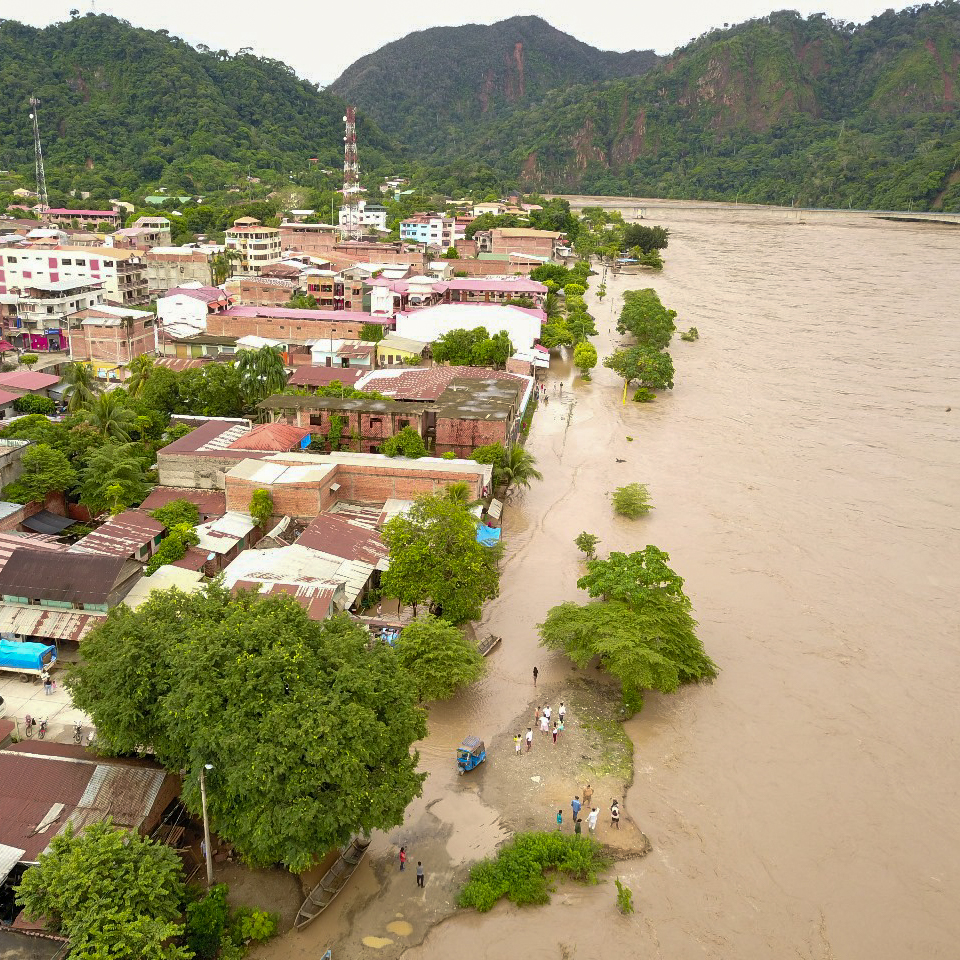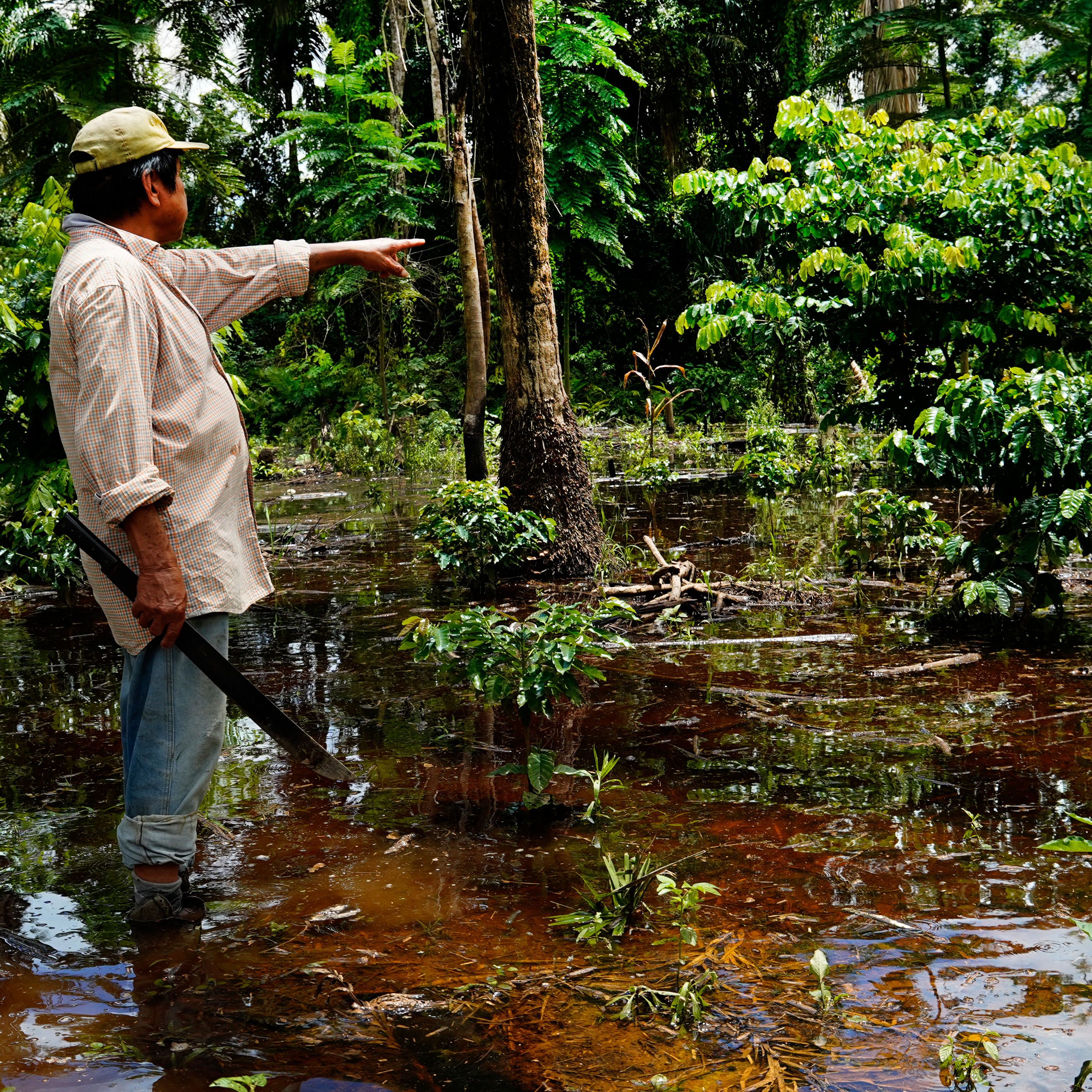
Hundreds of people in communities that work with Practical Action in the Amazonas region of Bolivia have lost crops and their livelihoods in devastating floods.
Heavy rains throughout March have raised rivers to dangerous levels, inundating remote Tacana communities living in the area.
The towns of Rurrenabaque, a major port on the River Beni which flows through the area woke up to severe flooding in the town on Friday morning (14/3).

It is the latest blow to indigenous farming communities who were already struggling to cope with the effects of climate change, which are characterised by longer, more frequent droughts, wildfires, heavy rains and flooding.
Wildfires destroyed homes and burned down crops of cacao, coffee, yuca, maize and other fruit trees vegetables when they broke out in late 2023 and 2024.
Since then, communities and Practical Action staff worked together to replant and recover the farms, improving resilience to weather-related emergencies and developing warning systems through the installation of solar panels for communication and to power water pumps and irrigation.
Wenceslo Mamio from the village of Capaina, said today (Friday, 14/3),
“The water is now in our community and in the next hours all the houses are going to flood. Besides this, we have a lack of fuel, so we can not be evacuated. We are asking our authorities and people in general for support – so we can at least have shared plots of land to feed our community later this year.”
This is the second major flood that Capaina, and other communities in the Tacana indigenous territory (in the San Buenaventura municipality) has faced in the last 10 years. In 2014 Capaina was flooded and almost all the population was evacuated for four weeks until they could start rehabilitation work and strengthen their resilience.

Our team based in Rurrenebaque are facing difficulties travelling to the area.
In addition to extreme rains, Bolivia is currently facing an economic crisis causing shortages of fuel. They are in constant communication with villages and will travel when water levels recede.
Practical Action works with Tacana communities throughout the region. Partnerships with villages along the River Beni include offering support to the impact of climate change via the construction of safe, raised shelters, community brigades, improvements to early warning systems which use solar power and communal radio, enabling off-grid communities to communicate with local authorities and each other to provide early warning of heavy rain, rising river levels and support for stranded villages.
Recently, The Women’s Tacana Route, won a Global Green Destination Award in a ceremony in Berlin for their work in creating sustainable, indigenous handicrafts and goods such as jewellery, cocoa paste, medicinal soap and textiles. This work provides women with valuable income, sustainable jobs and a way of maintaining biodiversity in a region threatened by climate change, deforestation from natural and human hazards such as oil and sugar production and pollution from mining.